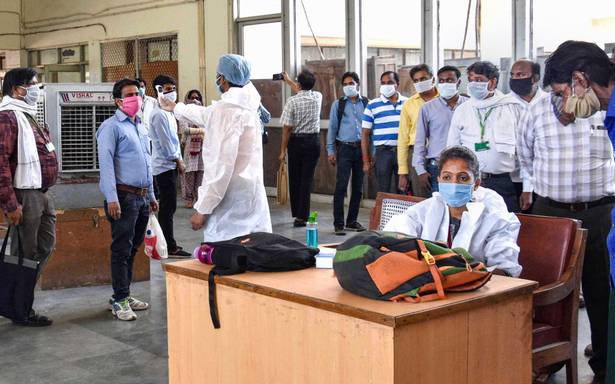The stringent lockdown imposed to curb the COVID-19 outbreak has had a crippling impact on the economy of Madhya Pradesh, where tax collection — SGST and IGST put together — dropped by close to 85% in April.
Also read: Coronavirus | In Madhya Pradesh, power play during a pandemic
“We collected around ₹250 crore, which is about 15% of the amount collected for the month last year. It is much lower than the target,” said Additional Chief Secretary, State Finance Department Anurag Jain.
Mining activity remains suspended across the State. Liquor shops will remain shuttered in the three red zone districts of Bhopal, Indore and Ujjain, but be partially open in the remaining six, during the continuing lockdown. There will be no curbs on liquor sales in the other 43 districts.
Falling fuel VAT
“In mining and excise, there is [now] hardly any revenue. The VAT on petrol and diesel has also come down to 60-65%,” said Mr. Jain.
As regards GST arrears, the Centre has settled only part of the pendency for December and January. The compensation loss for February and March of about ₹2,100 crore, and the remaining dues are still outstanding.

Staring at an imminent financial crunch, the State advanced its borrowings for April and May. The government borrowed ₹1,000 crore each on April 3 and April 10, while preparing to meet demands at least until April 14, when the lockdown was initially supposed to be lifted. Now, it plans to borrow another ₹1,000 crore in May.
The advance borrowing is vital given that the open market borrowing limit is considerably lower than the State’s urgent needs.
Further, the priority is on only essential expenditure at present, relating to managing the COVID-19 pandemic, sus

